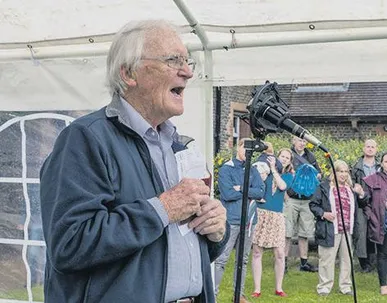
English L’Abri celebrates 50 years

James Paul
Date posted: 1 Sep 2021
Thanksgiving for the ‘reality’ and ‘richness’ of life in community were two themes that emerged from speeches given by past workers at a special celebratory event last month to mark 50 years of God’s faithful provision for English L’Abri in Greatham, Hampshire.
L’Abri Fellowship is a community-based apologetics ministry started by Edith and Francis Schaeffer in Switzerland. Every year the English branch welcomes hundreds of guests from all over the world to the Manor House to find a shelter (L’Abri is French for ‘the shelter’) within which they can wrestle through their questions about the truth and relevance of Christian faith; something that many of those speaking acknowledged is needed now more than ever in today’s complex and fragmented world, which presents so many challenges to Christian belief.
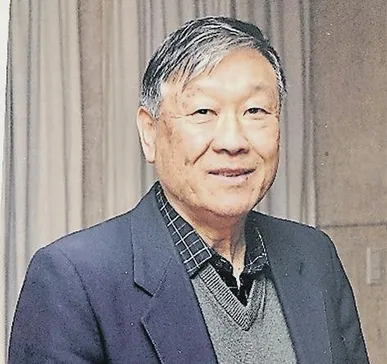
Puk Kyong Kim (‘Kim’) 1938 – 2019
Mark Harvey
Date posted: 1 May 2020
In the 1960s, a diffident young Korean, who was an ex-refugee aspiring to be a pastor, knocked at the door of Swiss L’Abri. Cynthia Stanton, Edith Schaeffer’s long-serving worker, opened it and greeted him. In due time, they were to wed.
It was a chalk-and-cheese liaison, but it was to produce much unobtrusive fruit. She was a Londoner, her father running a fleet of black taxi cabs. His father had fled North Korea to Beijing, where he and his wife sheltered refugees. Both Kim’s parents were freedom fighters in a volunteer Korean army against the Japanese in the Second Sino-Japanese War (1937–1945). They suffered torture and witnessed atrocities. Kim was born in Beijing one year into that war.
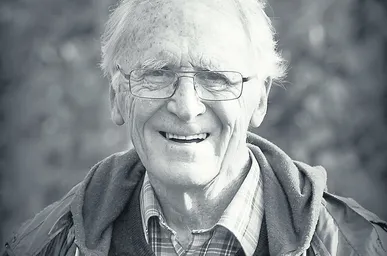
Evangelicalism in crisis
Ranald Macaulay
Date posted: 1 Jun 2018
Mary Davis interviews Ranald Macaulay for en
Ranald Macaulay studied Law at Cambridge University.
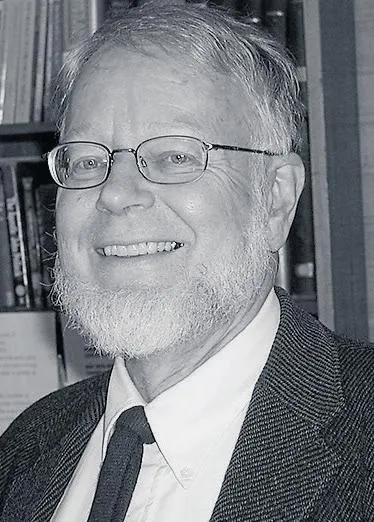
Joe Martin 1934 – 2019
Vaughan Roberts
Date posted: 1 Feb 2020
Joe essentially pioneered what
is now a
thriving ministry
to Oxford’s graduate
students.
He grew up in Little Rock, Arkansas, in
the deep south of America. While studying
history at Harvard, he met Christians who
challenged his
recently-avowed
atheism.
Those
early days
in
the
Inter Varsity
Fellowship left him with a deep appreciation
of and commitment to student ministry.

The opportunity of the crisis
Mary Davis
Date posted: 1 Jul 2018
This is the second instalment of an interview by Mary Davis for en with Ranald Macaulay
Last month, Ranald explained his deep concerns about evangelicalism: how Christianity seems totally implausible to our postmodern culture and how post-modernity’s effect is hugely accelerated by the Internet, social media and TV.

Evangelical crisis
Ranald Macaulay
Date posted: 1 Aug 2018
Dear Sir,
Kenneth J. Stewart is right to point out in
his July letter that I should have been more
careful in my statements about Pietism in
the 18th century. All sorts of helpful changes came from this German-based renewal
movement and we benefit from them to
this day. Church historian G. R. Cragg is
similarly positive. He devotes an entire page
to its merits in his The Church and the Age of
Reason (Pelican 1970).

Evangelical crisis
Kenneth J. Stewart
Date posted: 1 Jul 2018
Dear Editor,
I am largely in agreement with Ranald Macaulay’s concern over the prevalent evangelical tendency to shun engagement with society and its worrisome tendencies (en June ‘Evangelicalism in Crisis’). Yet I believe that his readiness to point the finger at European Pietism as providing an explanation of the origin of this tendency does not bear careful scrutiny.
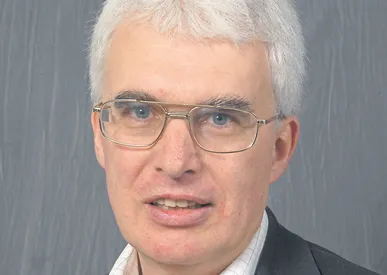
Undeniably mistaken!
Keith Fox
Date posted: 1 May 2017
Professor Keith Fox of Southampton University takes issue with the book Undeniable which Ranald Macaulay reviewed positively in en
In the opening paragraph of his review of Douglas Axe’s book Undeniable, Ranald Macaulay states that ‘evolution theory is no longer tenable and God’s creation is undeniable’ (en, October 2016).

Darwin undeniably discredited
Ranald Macaulay
Date posted: 1 Oct 2016
Ranald Macaulay introduces us to a very significant book
My admittedly dramatic title is deliberate.
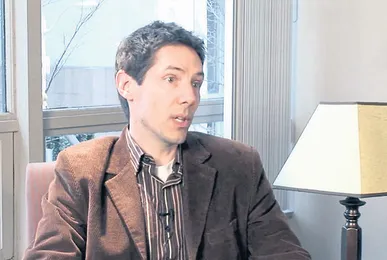
Undeniably true!
Douglas Axe
Date posted: 1 May 2017
Douglas Axe replies to Professor Fox’s criticisms
I’m grateful to Ranald Macaulay and to Keith Fox for taking the time to comment on my book.
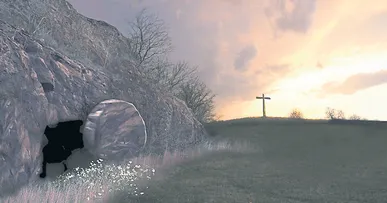
Lausanne & the polemical imperative
Ranald Macaulay
Date posted: 1 Mar 2016
Ranald Macaulay asks if the 1974 Congress missed something vital
When the Lausanne Congress opened in 1974 the global community was being treated to searing images of the Ethiopian famine.

Lausanne and true truth
Ranald Macaulay
Date posted: 1 May 2016
Dear en,
I was thankful for Chris Wright’s gentle
corrective in the April edition. I should have
expressed more appreciation for The Cape
Town Commitment because it is full of helpful
affirmations and observations.

Lausanne’s legacy
Sharon James
Date posted: 1 Apr 2016
Dear Sir,
Many thanks to Ranald Macaulay for his
clear, helpful and important article in the
March en.

Lausanne’s legacy
Dr Chris Wright
Date posted: 1 Apr 2016
Dear en,
Ranald Macaulay makes some very valid
points
in his article
‘Lausanne and
the
polemical imperative’ (March en). It is sadly
true that evangelicals in the past century,
with some notable exceptions, have not adequately
risen
to
the challenge of
‘truth
decay’, as Douglas Groothuis called it, and it
remains a major missiological need. I cannot
speak for Lausanne 1974 (except to say that
John Stott believed passionately in the crucial importance of the Christian mind), but
Ranald is perhaps a little unfair on Cape
Town 2010 – even if he is right that the programme did not make it ‘centre stage’. In the
sheer scale of what was presented and discussed at Cape Town, arguably nothing was
‘centre stage’.

Site seeing London’s Christianity
Peter Greyling
Date posted: 1 Jun 2015
As Christian Heritage opens a new centre in London, en interviews Peter Greyling about the work
en: Tell us about how the original vision for Christian Heritage Centres came about.
PG: In 1994 John Martin, a missionary who had retired from India to Cambridge, began giving guided walks of the city, using church history to tell the gospel to unbelievers and to stimulate believers. In due course the Round Church, Cambridge, became available and Ranald and Susan Macaulay founded Christian Heritage.

Intrinsic or extrinsic image?
Ranald Macaulay and Joe Martin indicate how theistic evolution tends to distort what it means to be human
Scholars have wrestled for many years to try to explain the familiar expression ‘the image of God’.

Image of God reply
Ranald Macaulay
Date posted: 1 Dec 2014
Dear Sir,
We are glad that Bob Alloway (Nov en)
seems to agree with our main point (Oct en)
that the image of God in man has to do with
our intrinsic nature. He says: ‘… theistic evo-lutionists would agree that (Adam and Eve)
were designed –
and would say,
‘[human
beings] didn’t just evolve by chance’.
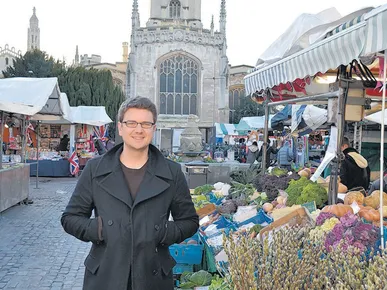
Christianity in the marketplace
David Illman was recently made co-director of Christian Heritage, Cambridge
Christian Heritage works to train Christians in communicating and defending the gospel.
Pussy-footing atheism
Ranald Macaulay
Date posted: 1 May 2013
Book Review
WHAT MAKES US MORAL?
Science, religion, and the shaping of the moral landscape: a Christian response to Sam Harris
Read review

Essentials of creation
Andy McIntosh
Date posted: 1 Jun 2014
Dear Editor,
I found the article ‘It is essential…’ in EN April 2014 by Ranald Macaulay to be very encouraging.
The last of England
Ranald Macaulay
Date posted: 1 Dec 2012
Book Review
TRIPLE JEOPARDY FOR THE WEST
Aggressive secularism, radical Islamism and multiculturalism
Read review
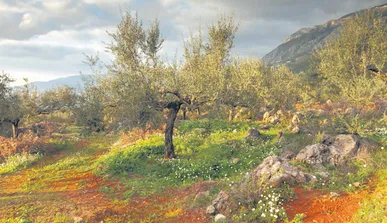
‘It is essential...’
Ranald Macaulay reminds us of what Lloyd-Jones and Schaeffer said about the scientific interpretation of Genesis 1-3
Three names dominated the UK’s evangelical landscape during the second half of the 20th century.